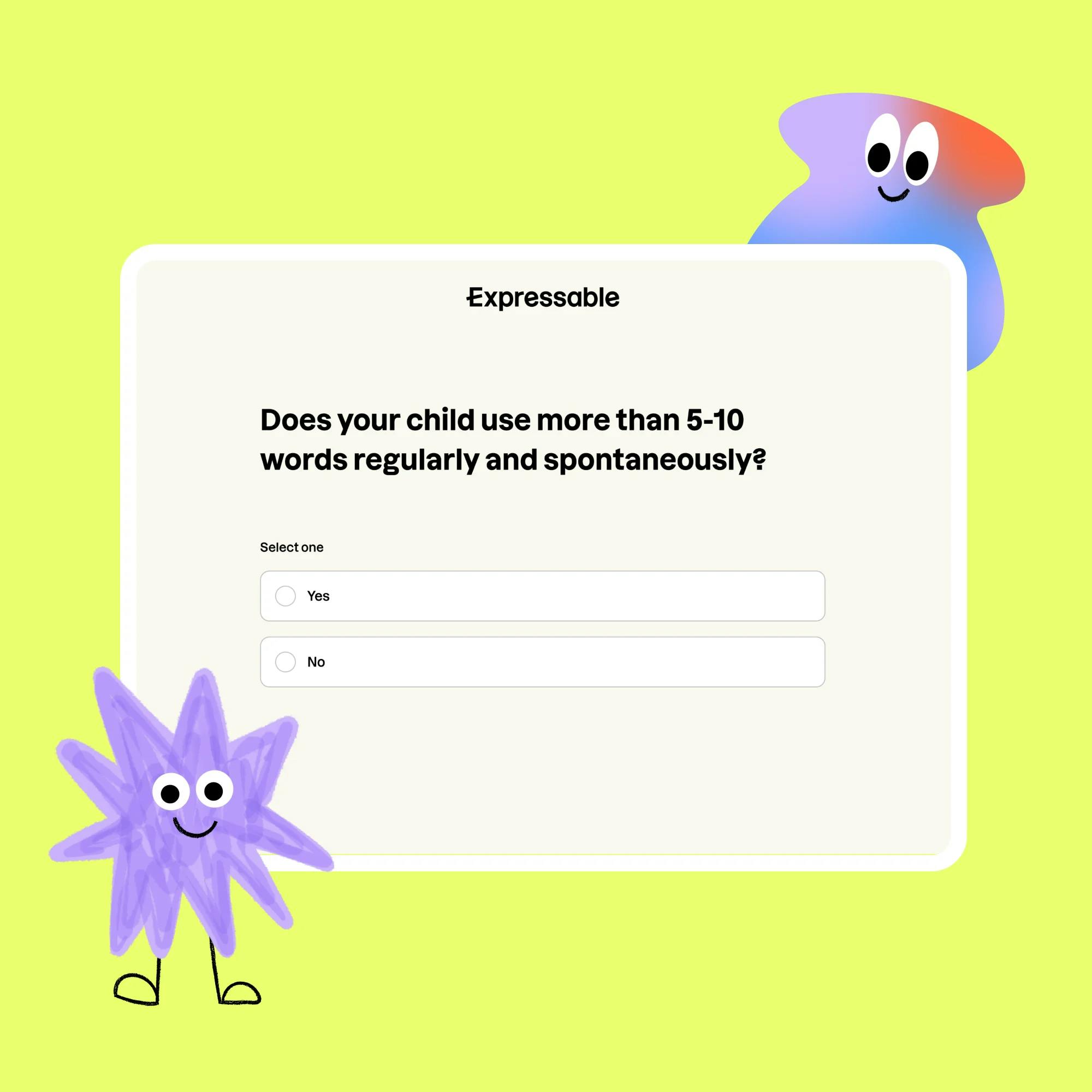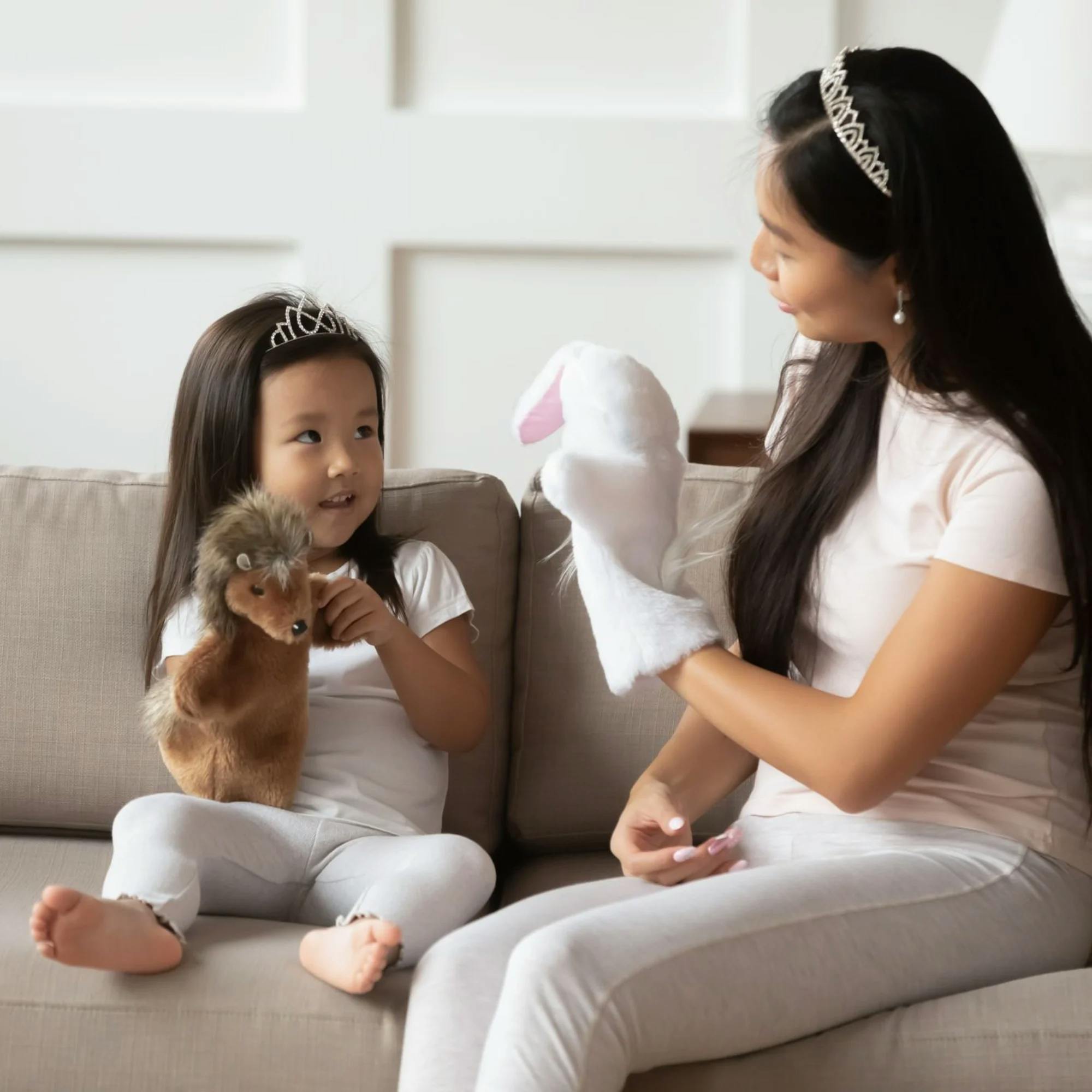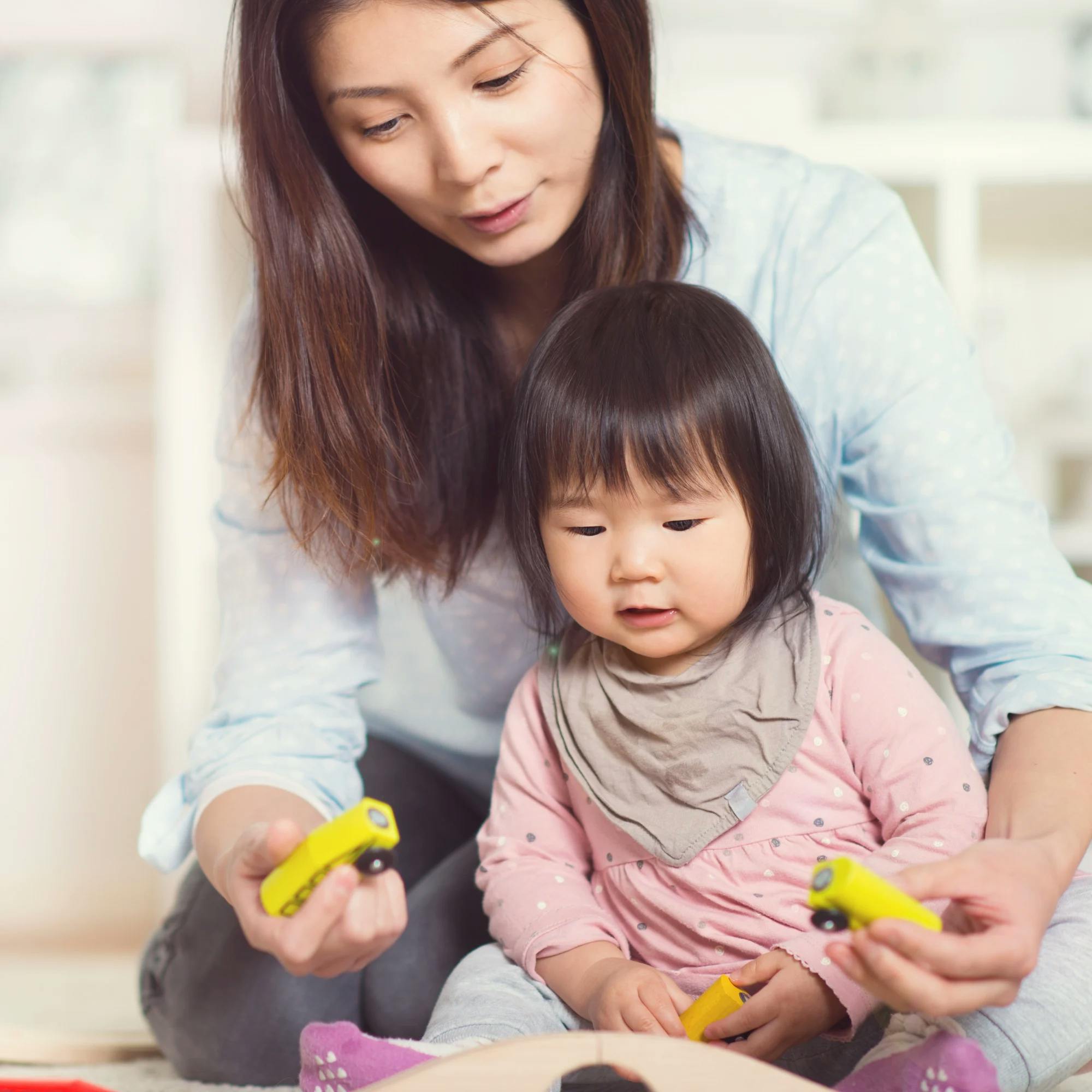Toddlers typically begin to talk around the age of 1. Waiting for your baby to say those magical first words can feel like an eternity. But as your child’s caregiver, you play a big role in helping them develop their speech and language. Here are 4 easy tips you can start trying today to get your toddler talking. When it does happen, it’ll be a moment you’ll never forget!


1 Ease the pressure to talk
It may seem counterintuitive, but if your toddler isn’t talking, try to ease up on the pressure to get them to talk. If you’re constantly giving them words to repeat, or you seem frustrated when they don’t speak, your child may pick up on this. Negative feelings toward communication can make kids shut down. It’s important to keep chances to talk light-hearted and fun.
You can certainly prompt your child to imitate your words, or give them directions such as “Watch me!” or “Say what I say!” But if you’re doing this all the time, your child may start to feel tense or pressured. Instead, you’re more likely to hear verbalizations from your toddler when you give them natural opportunities to comment and use words.
Your toddler is more likely to talk when you give them natural opportunities to use words.
You can do this throughout the day by asking your child questions and pausing in conversation to see if they respond. Let’s say you’re at the park together. You can say things like, “Wow, look at that big tree! Do you see the tree?” Pause and wait to see what your child says. Then continue commenting. “Look at the pretty green leaves. That tree is so tall.” Pause again to see how your child will respond.


2 Play with your toddler intentionally
One of the best–and most fun!–things you can do to help your baby develop communication skills is play. Getting down on their level and playing with toys that interest them may motivate your toddler to use words related to those toys. Whether you’re stacking blocks, taking care of a doll, or pushing a toy car or train, there’s always something you can do together to prompt your child to talk.
First, follow your child’s lead and play with the toys they choose. Kids are more likely to communicate when they’re interested in what they’re doing.
Kids are more likely to communicate when they’re interested in what they’re doing.
Let’s say your toddler is playing with a doll. Model words and phrases related to how you’re playing with the toy together. If you’re feeding the doll, make simple comments like, “Mmmmm, yummy food!” If you’re pretending to put the doll to sleep, say “Night, night!”
Make sure you model these phrases and words over and over. If you feel like a broken record—that means you’re doing it right! Children who aren’t yet talking need constant repetition of new words in order to learn them and eventually say them.

3 Give your child choices
Another easy, practical way to interest a toddler in talking is to give them choices. Offer your child two choices to questions such as, “What do you want to eat?” or “Which toy do you want?” Start by using motivating questions they’ll want to answer.
If possible, it’s best to show your child the options they can pick from. If you ask, “What do you want to eat?”, show them their snack options–say, “crackers” and “banana”–and model each word as you show them the food. Place one item in each of your hands. Maybe your child will point, reach, or give you some kind of indication of the snack they want. Prompt them to imitate the word. If they point to the cheese, you can say, “Crackers? Mmmm, you want crackers?” Even a simple answer like “Yes!” or “More!” would be a great response here! Model the first sound for your child–“C-c-crackers!”–to see if they can imitate even that first sound.
One important note: Don’t withhold the item too long. Just give your toddler a few opportunities to respond before handing over the snack or toy.
4 Try new activities or visit new places
Just like adults, toddlers can get bored with the same routine. It’s important to change things up to stimulate your child’s interest. And there are plenty of activities you can do and places you can go that don’t cost a thing. Try some of these ideas:
Visit a new park or playground
Go to a different grocery store
Let your child help make a meal
Let your child help with household tasks
Rotate toys every couple weeks so that they feel “new”
Take a walk in another neighborhood
Go to the library
Try new art or craft projects
When your child is engaged and interested in what they’re doing, they’re much more likely to want to talk about it. Try some of these activities and use the modeling techniques covered above to help your child imitate new words. Don’t put too much pressure on them, but talk to them frequently so the words soak in. Make sure to pause and give your child time to respond.
How do you know if your child needs speech therapy?
Some toddlers will need help from a licensed speech-language pathologist, also known as a speech therapist, in order to start talking. But how do you know when speech therapy is needed?
It helps to become familiar with speech and language milestones for children. If your child isn’t meeting these milestones, if they have trouble communicating daily, or if you’re noticing frequent frustration in them, it may be time to talk to a speech therapist. Visit our Learning Center to learn more about speech and language milestones from birth to age 5 years.
When it comes to speech therapy, the “wait and see” approach can cause precious time to be lost. Early intervention is the best way to get your child caught up with the skills expected for their age. If your child isn’t meeting age-appropriate milestones and you’re even slightly concerned, start looking for a speech therapist. There may be a waitlist, so it may be awhile before a first appointment can take place.


How to find a speech therapist
There are many things to consider when looking for a speech therapist, such as where therapy will take place (at your home, at a clinic, at school, or online) and whether you’ll be paying for therapy yourself or using insurance.
It’s also important to find a speech therapist who is skilled in working with toddlers. Speech therapists work in a variety of settings with clients of all ages. So spend some time researching the one who will be the best fit for your family.
Discuss your concerns with your child’s pediatrician as well. They may have a list of speech therapists they recommend. You also may need a referral from your pediatrician for speech services in order to be reimbursed by insurance.
It’s important to note that all children are different and follow their own developmental timeline. Just because your child isn’t displaying certain behaviors doesn't necessarily mean they won’t eventually catch up. However, if your child isn’t hitting the milestones for their age, talk with your doctor or seek an evaluation from a certified speech therapist.
How Expressable Can Help
Concerned your child isn't reaching age-expected milestones? Looking for communication support from a professional? Expressable is a national online speech therapy practice serving children and adults. We treat all major areas of communication and feeding, offer flexible hours including evenings and weekends, and accept most major health insurance plans. We’re proud to have earned more than 3,000 5-star reviews from our clients (4.9/5 average).
Our therapy model is centered on parent and caregiver involvement. Research proves that empowering caregivers to participate in their loved one’s therapy leads to better outcomes. That’s why we combine live, 1-on-1 speech therapy with personalized education and home practice activities for faster progress.
Communication is more than words. It’s how we share how we feel and show who we are. We’re here to help you or your child do just that.

 Abby Barnes, M.S., CCC-SLP
Abby Barnes, M.S., CCC-SLP












